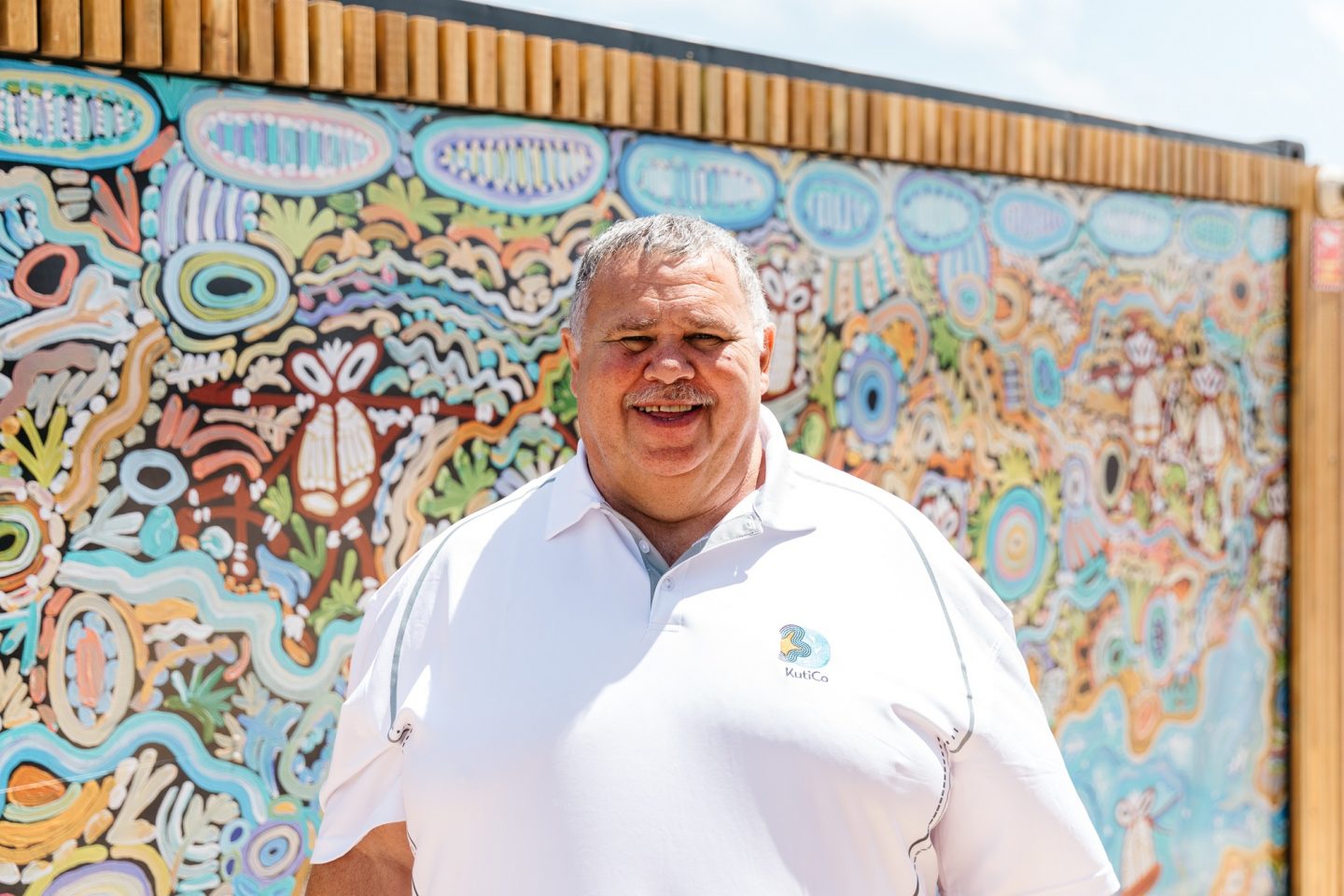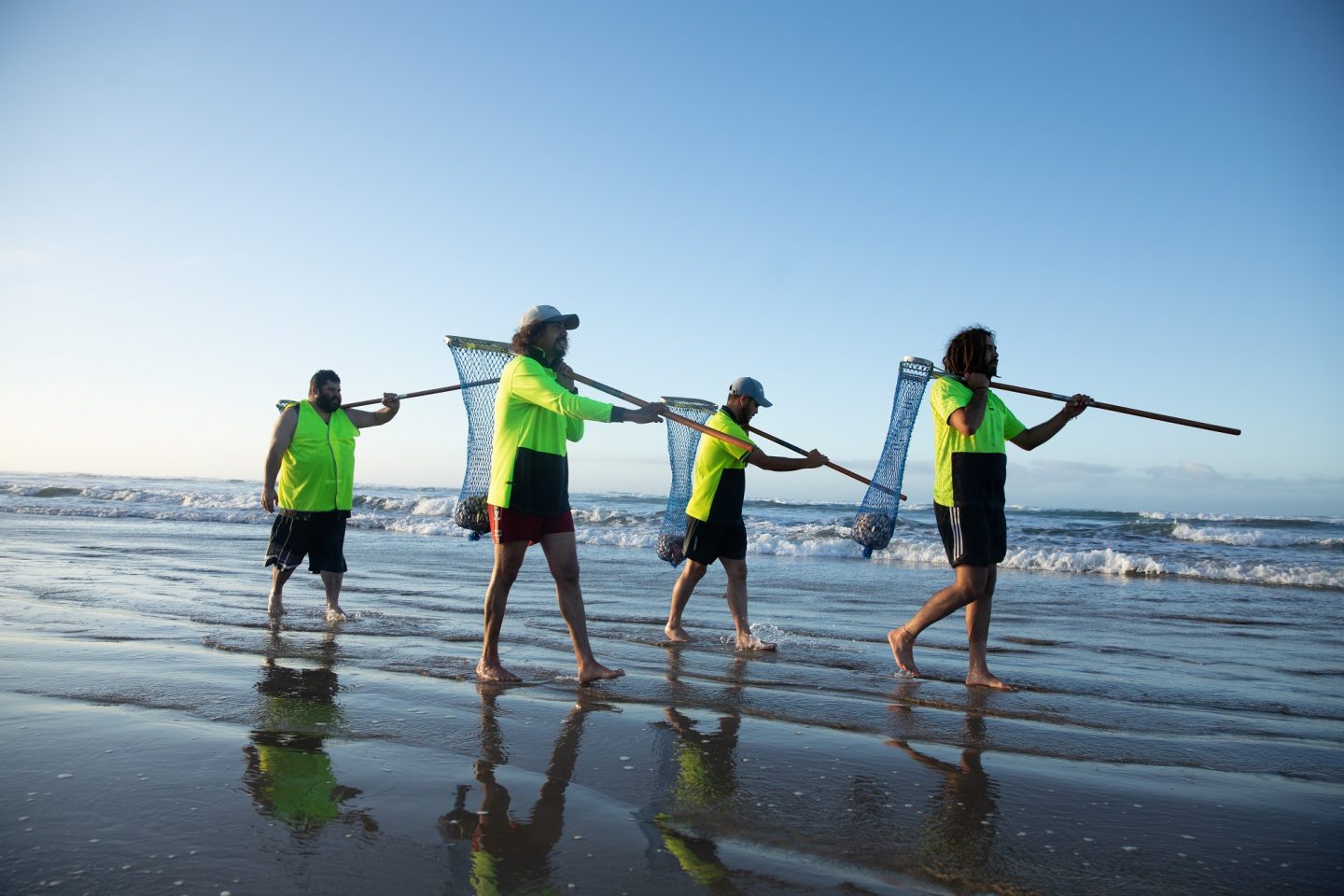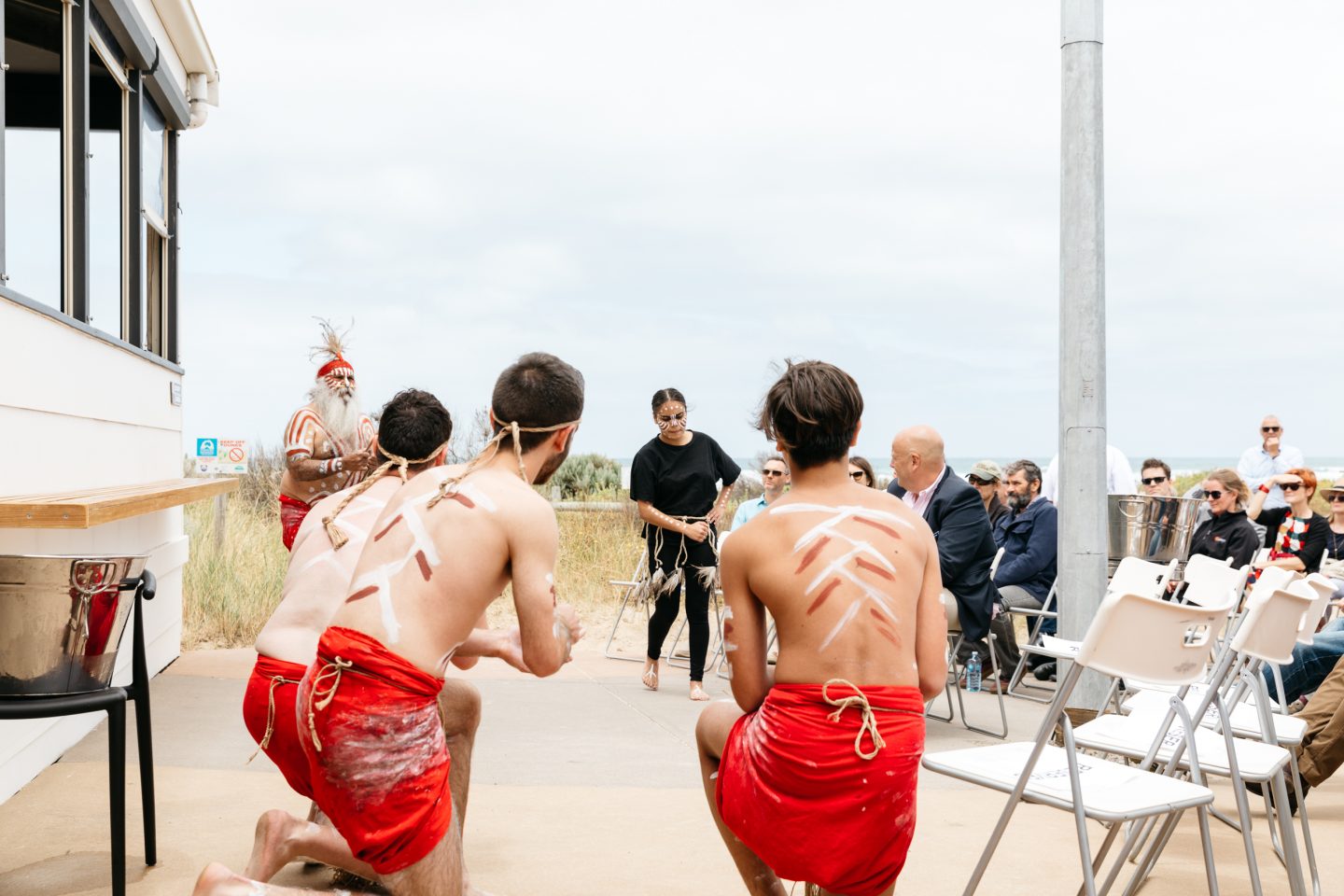
Walter Marsh
Walter is a writer and editor living on Kaurna Country.

In the last five years the South Australian pipi (a form of cockle, or as Ngarrindjeri people call it, the kuti) has become a sought-after product in the seafood industry. Now, a new partnership will see the Ngarrindjeri community reclaim a stake in the rising fortunes of their traditional staple food.
For thousands of years Ngarrindjeri people have harvested kuti; pulled from the sand, cooked on hot coals or mud ovens, then eaten on the beach. The evidence can be readily seen in the many ancient middens – mounds of discarded shells – that dot the dunes around Goolwa and the Coorong.
“It’s like the DNA of Ngarrindjeri, it’s in this land,” explains Derek Walker, a Ngarrindjeri leader and CEO of the newly founded Kuti Co. “From our perspective it’s like the broader community going to the beach at summer – our mob did that traditionally on the Coorong. The middens are huge. And it doesn’t just go along Sir Richard Peninsula and Younghusband Peninsula, it goes out to the continental shelf – there are middens underwater going out that far.”
Colonisation disrupted that connection, like it did for so many First Nations around the continent who were displaced from their country and relied-upon food sources. “In 1859, that was when the Raukkan mission [once known as Point McLeay] was established; the community was being squeezed, pushed and taken off land and not able to access traditional fishing and hunting grounds.”

When a Royal Commission into the welfare of South Australia’s Aboriginal population was called in 1913, the idea of allocating fishing grounds to the repeatedly broached by David Unaipon, the famous Ngarrindjeri author and inventor. “In 1913, at the Royal Commission in Adelaide, he said, ‘Look, food security is a real issue. What about we get access to our traditional hunting and fishing grounds?’” Walker says. “He’s asking for a fishing licence in 1913. It took 106 years for us to get here, which is… you know, it just blows your mind.”
But don’t mistake this for a ‘give a man a fish/teach a man to fish’ scenario; it’s perhaps more akin to getting out of the way. The enterprise will provide economic empowerment to the Ngarrindjeri community, eventually employing dozens of Ngarrindjeri workers at various stages of production. But perhaps most importantly, the enterprise also will bring some long-overdue agency.
“We run a working on country program, and there is no better thing for our young people than to work on country,” Walker says. “We run some programs called cultural affirmation, and as they understand what their heritage is and where they’ve come from, it develops them as people.”

The project is assisted by the Indigenous Land and Sea Corporation, whose injection of $5 million over four years has allowed Kuti Co. to gain a fishing licence, acquire a commercial pipi quota in the Lakes and Coorong fishery and buy into pre-existing company Goolwa Pipi Co. The partnership comes after long and complex negotiations, from within the Ngarrindjeri community all the way to federal parliament – the venture had to push legislation to be passed expanding the then-Indigenous Land Corporation’s remit to include aquaculture.
Kuti Co.’s partner company, Goolwa Pipi Co., is a non-Indigenous enterprise that in a few short years has had remarkable success transforming the pipi’s standing in the market. Once the shellfish were mainly sold as cheap bait, but Goolwa Pipi Co’s investment in a state-of-the-art processing facility at Port Elliott, and a solid marketing push, has seen pipis become an increasingly sought-after product in restaurants and supermarkets.

Kuti Co.’s launch coincides with the Goolwa beach kiosk, previously occupied by Bombora Café, being transformed into the Kuti Shack, a seaside eatery celebrating local seafood and native ingredients while also inviting beachgoers to engage more deeply with the country they’re sunbathing on.
Importantly, through Kuti Co. the Ngarrindjeri community now have a stake in the rising value of their traditional food source – an important distinction in a sector where the growing interest in traditional and native foods does not always flow back to communities.
“I think that whole bush tucker opportunity leads to [giving] people some cultural understanding, but also opportunity,” Walker reflects. “Because I think there’s going to be some real opportunity.”
This article has been updated

Walter is a writer and editor living on Kaurna Country.